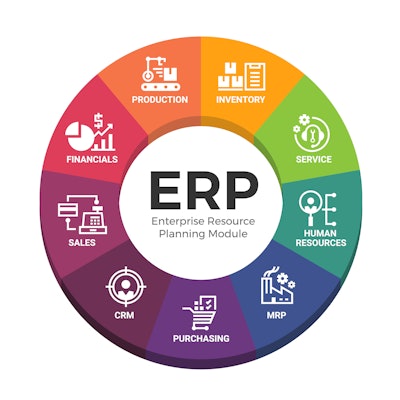
In the highly regulated world of food and beverage, compliance isn’t optional; it’s essential. Food and beverage companies face increasing pressure to ensure safety, traceability, and transparency as they work to meet requirements from an ever-growing web of international regulators, such as the FDA and HACCP.
At the same time, businesses are rushing to incorporate artificial intelligence (AI) into their enterprise resource planning (ERP) systems to improve efficiency, agility, and insights. However, with power comes responsibility: ensuring ethical AI is critical for balancing automation with responsible, transparent data use, as well as maintaining compliance, trust, and operational integrity.
Ethical AI: A necessity for modern F&B
Consumers' demands for transparency are rising. The demand for transparency on ingredient origin, manufacturing practices, and allergen and nutrition information is constantly growing. In recent years, there has also been an increased emphasis on "clean labels" and transparency about allergies and provenance, particularly in the United Kingdom.
However, AI systems might unintentionally introduce bias, such as skewed supplier assessments based on historical purchasing habits rather than current quality performance, or mislabeling substances due to inadequate or missing data. In the food and beverage industry, misclassification might result in a significant allergy error or a contaminated batch reaching customers.
To address this, ethical AI frameworks, including responsible data governance, explainable algorithms, and bias-checking measures, are increasingly required in ERP systems. These frameworks ensure that AI choices can be inspected, traced, and reversed while maintaining regulatory compliance and consumer trust.
From data to trust: Key areas where AI supports compliance and transparency
Traceability
AI-enhanced ERP enables real-time ingredient traceability from farm to shelf. When supply chains include multiple parties, global borders, and complex procedures, AI can use IoT and ERP data to identify potential breaches, quarantine problematic batches, and support rapid recall management.
Regulatory reporting
AI can create advanced compliance documentation, including HACCP hazard records and FDA import/export forms. These documents are accurate and quick to create as they are based on verified ERP data and audit trails, reducing human error and administrative burden.
Bias reduction
By including bias detection technologies and strict supplier governance modules, ethical AI ensures that decisions on which supplier to prioritize are based on performance metrics, audit scores, and compliance records, rather than outdated information or misleading data.
Safety and labelling
With allergens and nutritional information critical to consumer safety, AI-integrated ERP technology can validate labelling by cross-referencing ingredient databases, regulatory thresholds, and recipe batches. Any inconsistencies or irregularities can be found before the products are released to market.
Sustainability compliance
AI-enabled ERP systems can track and verify environmental impact metrics, including carbon footprint, water usage, and packaging recyclability across the supply chain. Businesses can meet legal requirements while providing consumers and stakeholders with verifiable data by tying these indicators to compliance frameworks and sustainability certifications.
Closing the loop: Ethics, AI, and compliance
Ethical AI integrated into ERP systems can help the food and beverage industry achieve greater compliance, transparency, and trust. Businesses can future-proof operations against compliance failures while increasing consumer trust by implementing use cases such as QR-based product traceability, AI-powered maintenance and waste reduction, inventory planning, and ethical AI governance training.
By balancing innovation and responsible data usage, F&B enterprises can not only meet but exceed regulatory standards set by agencies such as the FDA and HACCP, enhancing resilience, reducing waste, and reinforcing public trust. Ethical AI is more than just a technological advancement; it is a strategic imperative for the next generation of responsible food and beverage companies.



















